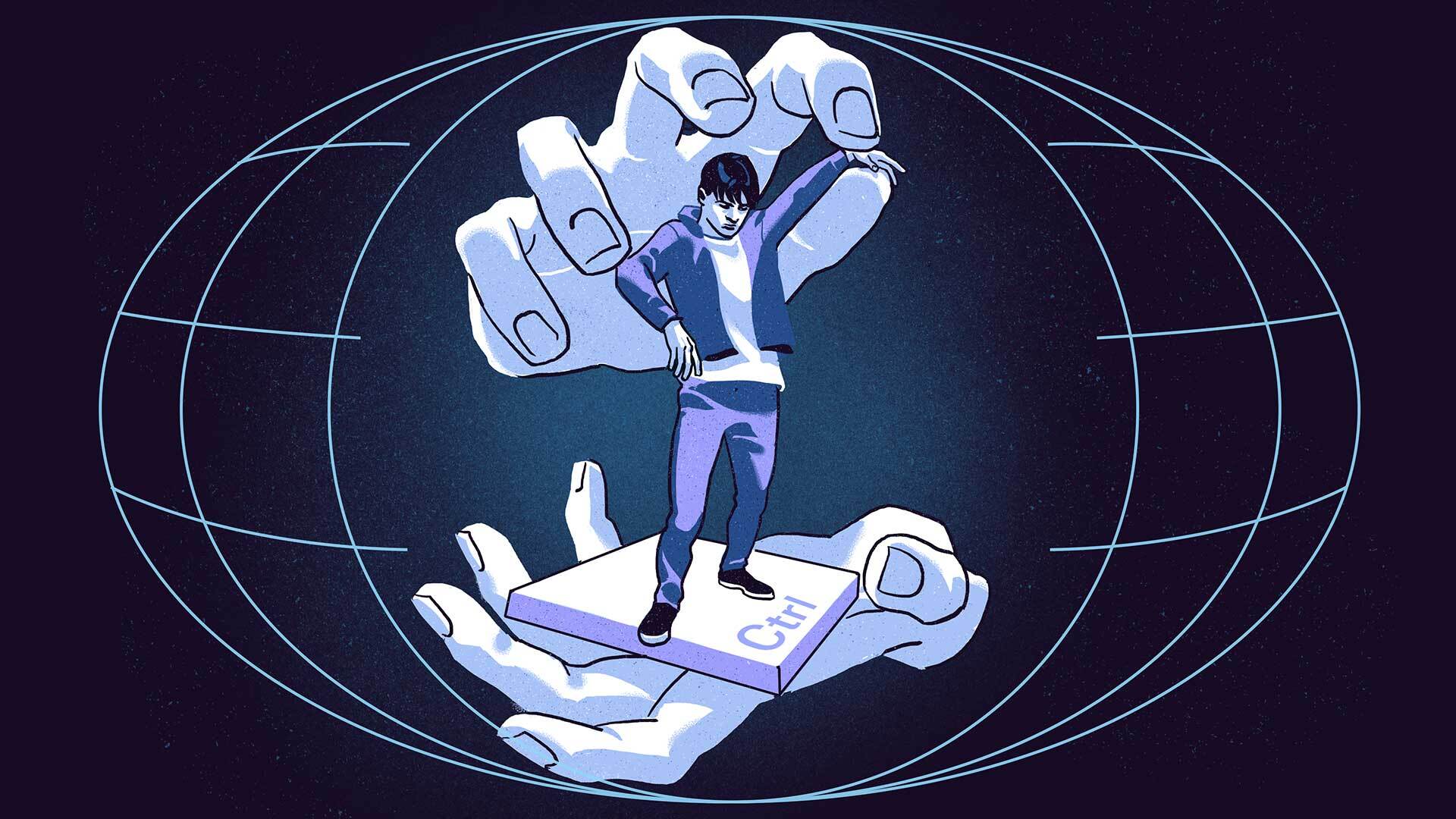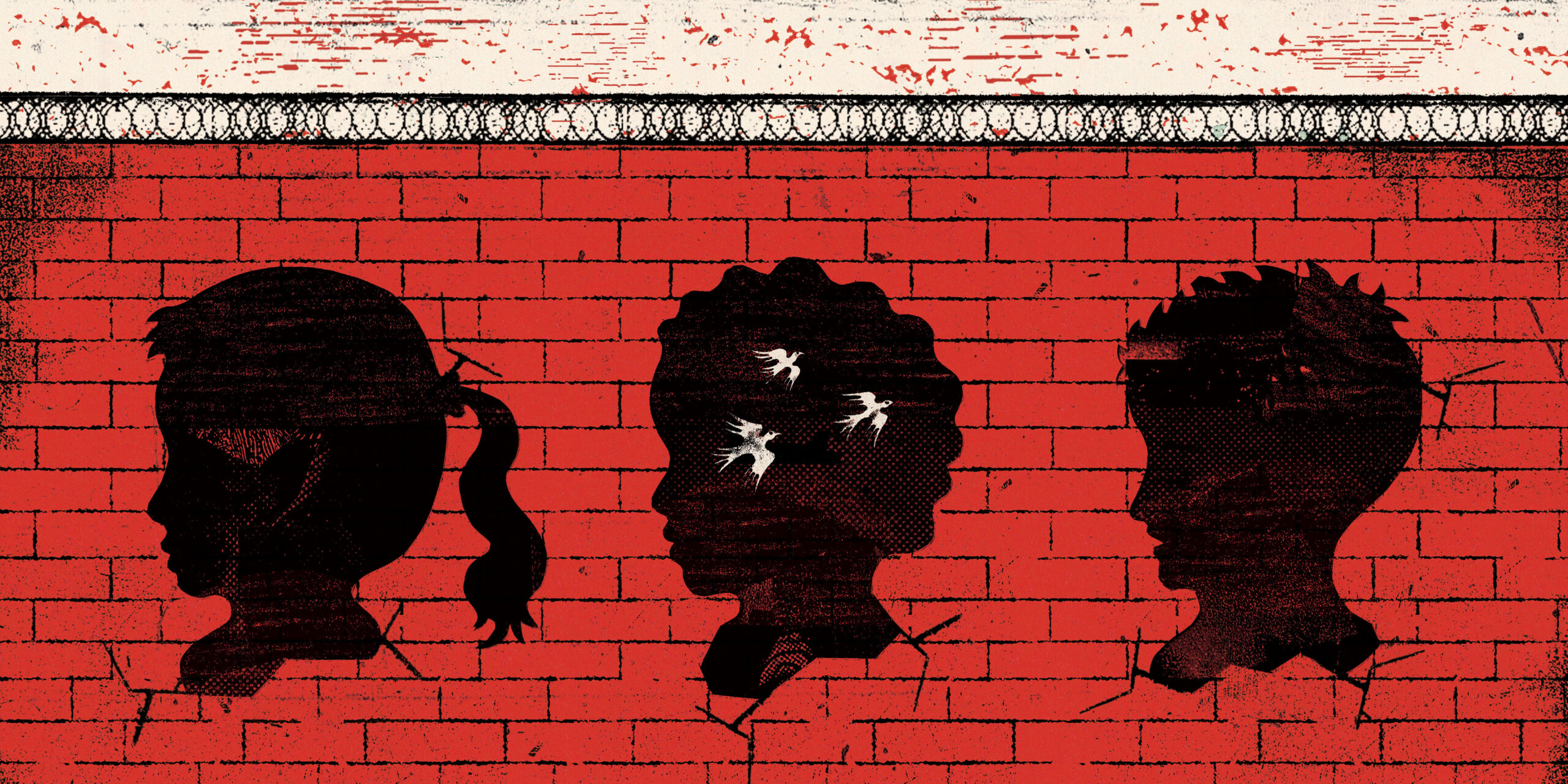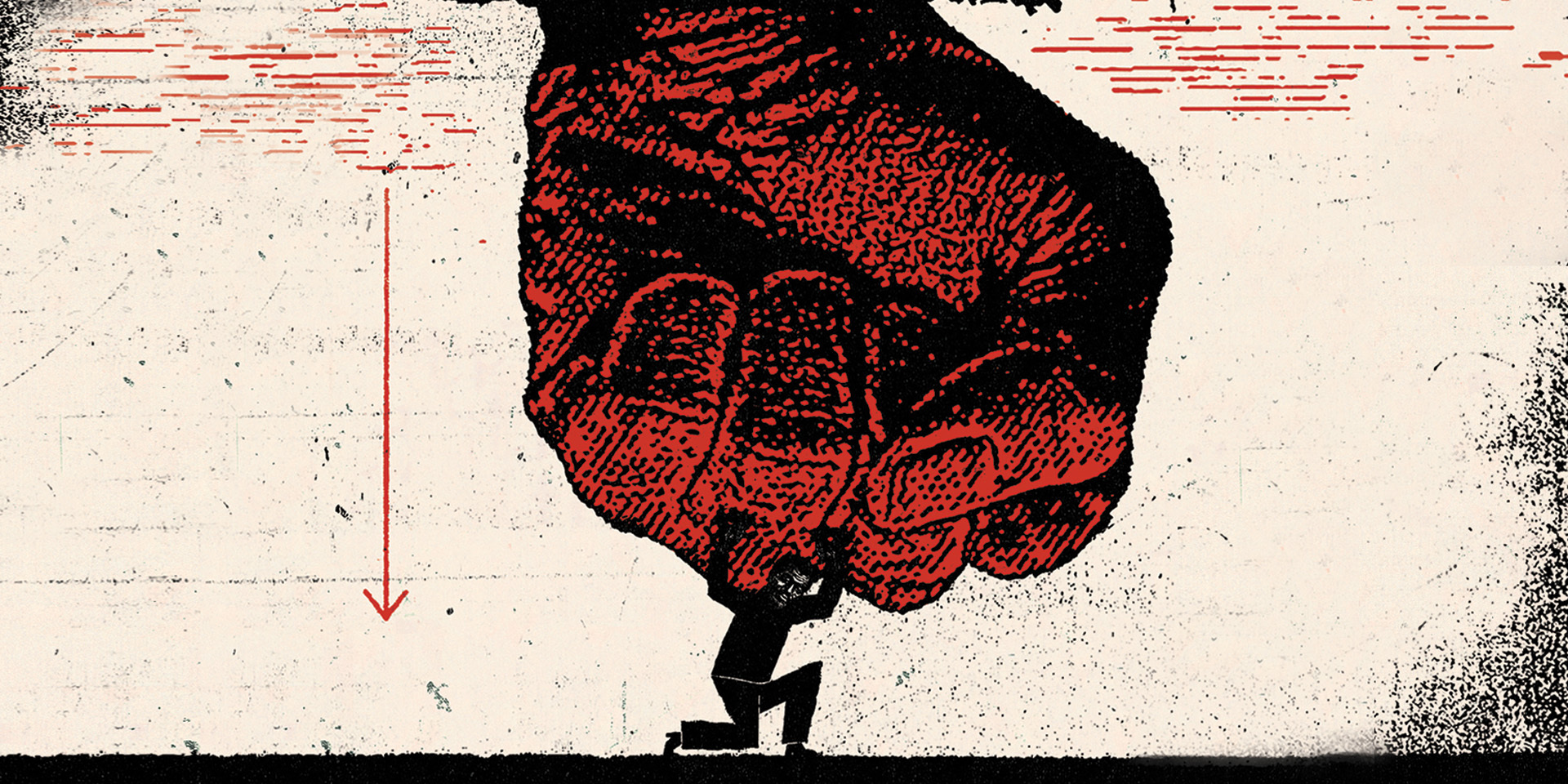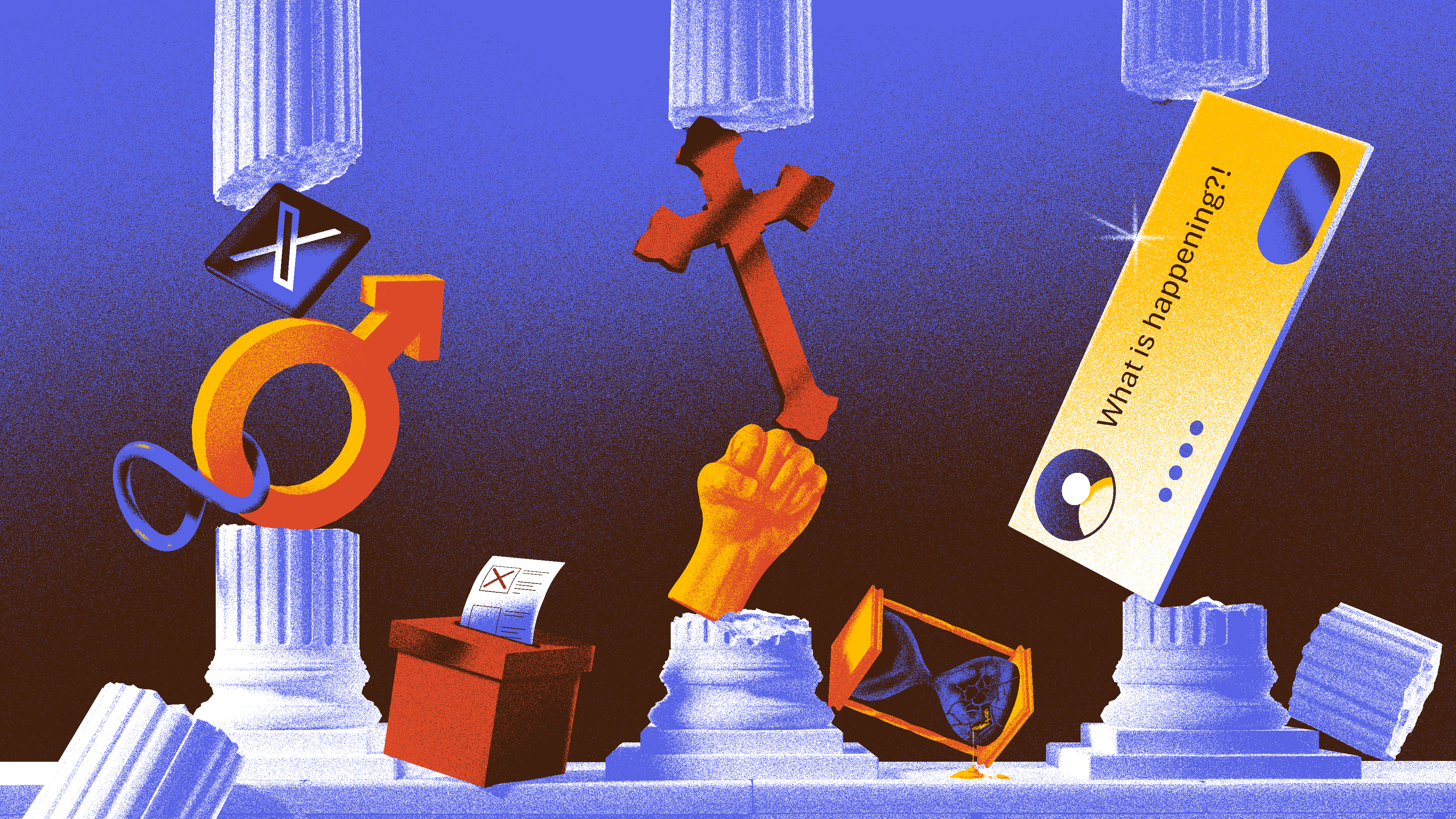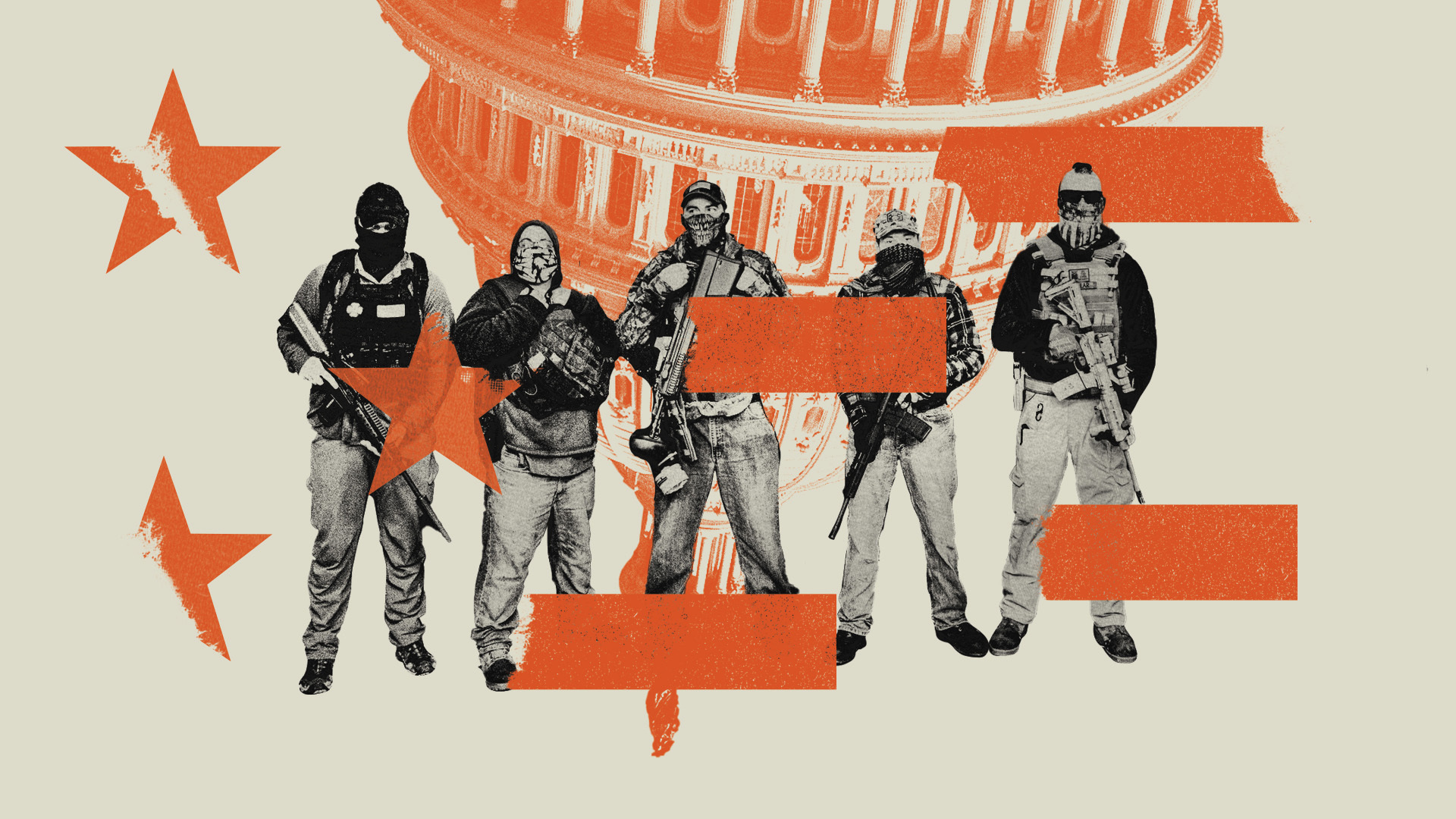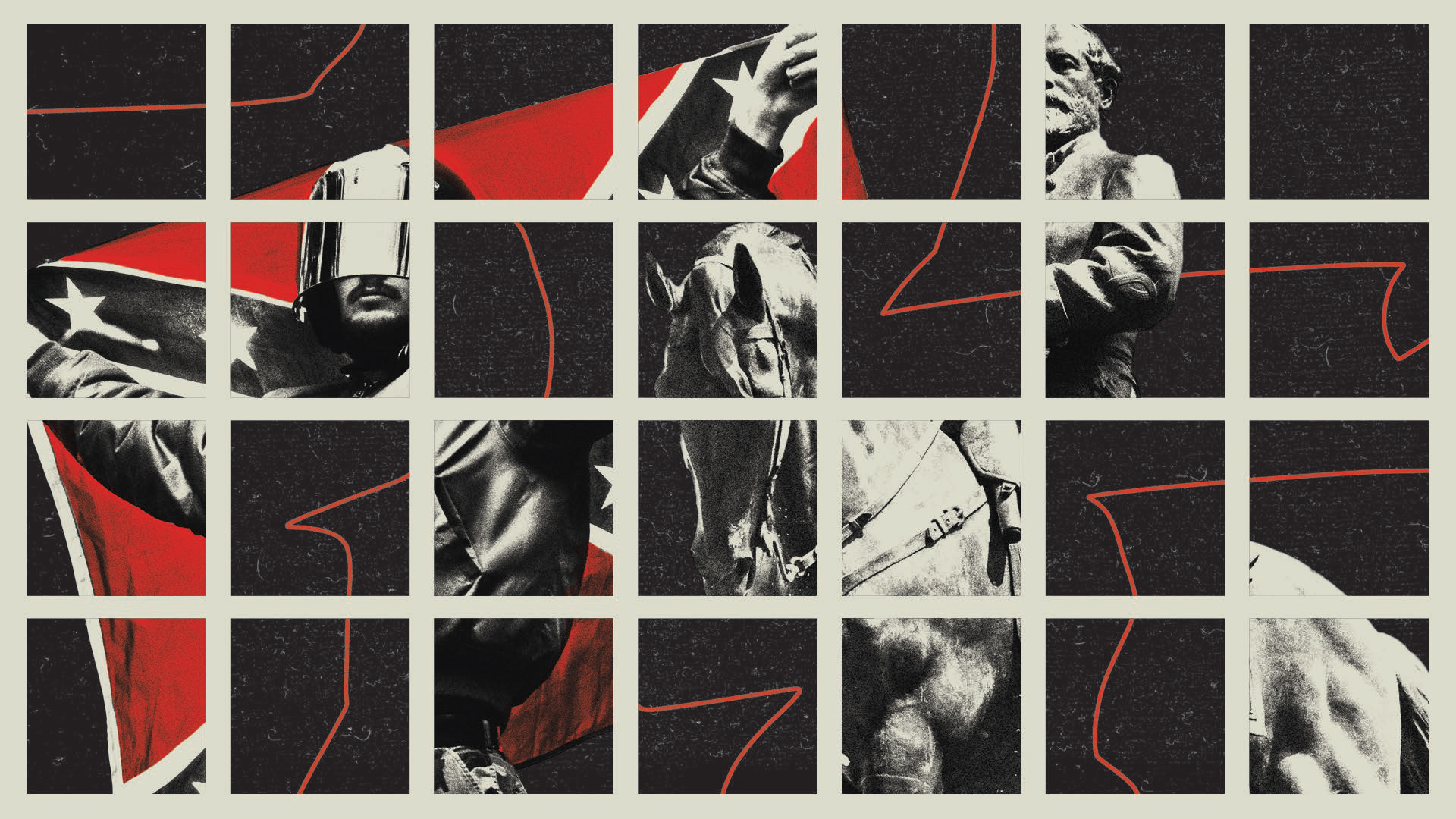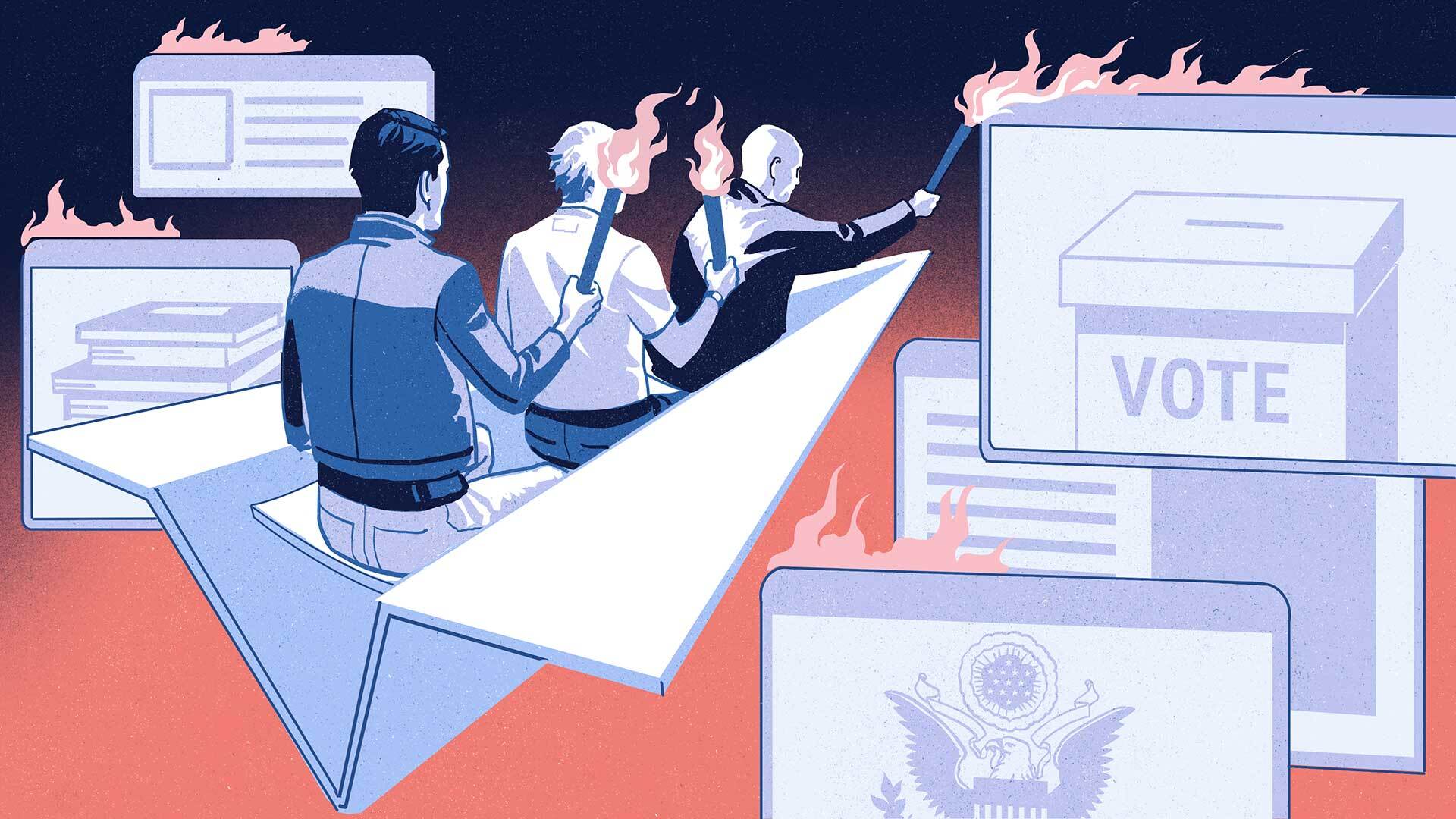In the wake of the 2024 presidential election, misogynistic content was rampant across social media. Posts using the phrase “your body, my choice” increased by 4,600% on X just 24 hours after the election. While these posts aimed to undermine women’s ability to freely and safely navigate online platforms, such hate is not detached from offline, interpersonal interactions. Girls and women across the country also reported being harassed in schools and on college campuses.
This rhetoric is not only a symptom of the president’s misogynist language and actions but also a facet of a patriarchal, white supremacist culture that continues to value the contributions, opinions and sheer existence of men and boys over all others. The increase in the most extreme corners of the “manosphere” — a collection of blogs, forums and websites, the members of which mobilize around misogyny and anti-feminism — in 2024 is hardly unpredictable when these ideas are platformed by elected figures in the highest offices.
Male supremacist hate groups and trends in 2024
This year, the Southern Poverty Law Center documented seven new male supremacist hate groups, thanks in part to continued efforts to improve tracking of this ideology. This brings the total number of male supremacist hate groups to 16, though this is certainly still a low estimate. While the number of male supremacist hate groups remains relatively low, this ideology is a facet of all other supremacist ideologies the SPLC tracks, and these groups have outsized influence on society. Many of these new groups represent a rise in self-styled “alpha male” social media influencers who peddle pseudoscientific advice about physical health, relationship guidance that promotes misogyny and rigid gender roles, and supposedly effective schemes to make money.

One group appearing on the SPLC hate and antigovernment extremist map for the first time is Fresh & Fit. The Fresh & Fit podcast, dedicated to “females, fitness, and finances,” is hosted by Myron Gaines (real name Amrou Fudl) and Walter Weekes. Gaines is the author of the 2023 book Why Women Deserve Less, and Weekes is a “dating and lifestyle coach” in the predatory pickup artist and alpha male industry. On their podcast and in related business ventures, the hosts repackage age-old toxic masculinity as self-improvement and describe relationships as transactional and zero-sum. For example, Weekes offers virtual coaching sessions related to dating or business, charging $500 for a 20-minute session. While Fresh & Fit has been deplatformed on Facebook and Instagram, it has 1.56 million subscribers on YouTube and over 360,000 followers on the alternative video-sharing platform Rumble.
Many of the other groups listed are part of the Black manosphere — a subset of the broader manosphere that specifically aims to attract Black men. Like its predecessor, the Black manosphere rejects feminism and views men as the primary victims of modern society. In addition to these core beliefs, the Black manosphere presents itself as a movement to uplift Black men, often disparaging Black women and the wider Black community in the process.
The leaders of the Black manosphere blame Black women for serious issues facing the Black community such as disproportionate incarceration rates, poverty and higher incidence of HIV.
While dominated by men, the manosphere is not exclusively male. Hannah Pearl Davis is perhaps the most influential woman within the male supremacist movement, and she runs the business entity JustPearlyThings LLC. Davis holds many contradictory opinions. She argues that we need to return to “traditional values” but insists “marriage is a bad deal for men.” She has advocated banning divorce, repealing the 19th Amendment (guaranteeing women the right to vote), and calling for women to fully submit to their husbands. She inflates negative statistics about women and not only questions but downplays the allegations of sexual harassment, assault and domestic violence. As of December 2024, the media-labeled “anti-feminist” and “female Andrew Tate” had nearly 2 million subscribers on YouTube.
Widespread impact
While the toxic masculinity, dehumanization of women and restrictive gender stereotypes the male supremacist movement endorses is nothing new, social media algorithms have allowed its message to reach millions. A leaked guide from Andrew Tate’s subscription-based program directed supporters to use controversy to manipulate TikTok’s algorithm and reach wider audiences. “What you ideally want is a mix of 60-70% fans and 40-30% haters,” the guide directed. “You want argument, you want war.” Tate has also used his platform and appearances on other male supremacists’ podcasts to argue women are their husbands’ property, “are barely sentient” and must “obey” their partners.
A large body of research as well as whistleblowers have warned that social media algorithms amplify hateful and extremist disinformation. In one study, researchers found that over just five days of consuming content related to loneliness or self-improvement on TikTok, the number of misogynistic videos promoted on accounts’ “For You” pages nearly quadrupled, from 13% to 56%. Another study found that new accounts started by boys on TikTok and YouTube Shorts were fed manosphere content within 26 minutes of being on the platforms.
While these hate groups and hard-right extremist figures organize primarily online, their consequences extend far beyond screens. The results of one survey found children and young people exposed to misogynistic online content like Andrew Tate’s are twice as likely to believe there should be a more dominant person in a relationship and almost five times more likely to believe physically hurting someone is acceptable.
Beliefs underpin actions. According to the Centers for Disease Control and Prevention, about one in 12 high school students who have dated in the last year experienced physical dating violence during that same period. One in 10 also experienced sexual dating violence. These harms disproportionately impacted female students and those who identified as LGBTQ+.
Vulnerabilities to and warning signs of radicalization
The male supremacist groups and individuals that motivate this harm exploit young people’s vulnerabilities to manipulation. While no single combination of factors guarantees a person will internalize these hateful ideologies, many life experiences can increase a person’s susceptibility to them. Many of these experiences are genuine grievances that should be addressed as such; male supremacists, however, exploit these difficulties by scapegoating women, the LGBTQ+ community and feminism as the cause of societal and personal hardship.
Social isolation, depression, loneliness or a perceived lack of belonging can leave young people searching for community and a sense of self. Male supremacists engage in actions that promise to fill the void created by a lack of belonging with a sense of self that centers on wealth, status, fitness and social dominance.
Many of the male supremacist groups and individuals listed on the SPLC’s 2024 Hate Map also harness ideas about gendered roles and entitlements that boys and young men are often socialized to uphold. For example, patriarchal social norms lead some boys and men to believe they should dominate and control women. Illustrating this belief, the Fresh & Fit podcast’s X account tweeted, “Give [women] less so they respect you and give you more.” Similarly, in a podcast episode featuring Andrew Tate and his close friend Justin Waller, Waller explains, “Fear equals respect equals love,” when discussing how to build relationships with women. When male supremacists’ supposed entitlements to women’s bodies, time, attention and labor are not being met, blame and backlash ensue, as evidenced by Mumia Obsidian Ali of the Black Manosphere. He has argued that if women don’t have sex after every date, men should use the Black Manosphere’s network to create a “dinner whore registry” to shame them.
Trauma, loss and disruption to one’s daily routines may also increase a young person’s susceptibility to radicalization. These often unpredictable and uncontrollable events leave people searching for meaning and reason. For example, during the COVID-19 pandemic, some extremists offered simplistic pseudoscientific answers for complex questions about vaccines and racist disinformation about the cause and spread of the illness.
In the United States, only 26 states require that sex and HIV education be medically accurate. This leaves chasms in young people’s understanding of sexual health, sexual orientation and gender identity, anatomy and reproduction, and consensual relationships. With a lack of knowledge about reproductive health and processes, male supremacists spread violent disinformation about abortion and other facets of reproductive justice. For example, in a November 2023 poll on X, male supremacist and online manosphere figure Anthony Johnson, who runs the hate group 21 Studios, asked his followers how women should be punished for abortions: life in jail or capital punishment. Most of his supporters voted for the death penalty. Similarly, male supremacists use a lack of knowledge about transgender identities, experiences and health care to spread pseudoscientific disinformation about members of this community. This contributes to dehumanization and fearmongering, as evidenced by Hannah Pearl Davis’ assertion: “I’m transphobic. I am in fact afraid of trans people.”
Male supremacists often lace their rhetoric with edgy humor from their subculture’s ever-changing terminology. They use humor to degrade girls, women and transgender men and boys and to make their bigoted content more palatable or enticing. While similarly dehumanizing, the evolving language of male supremacists, with terms such as “alpha,” “hypergamy” and “sexual market value,” also reinforces a sense of belonging and camaraderie among group members.

Preventing radicalization and harm
The harm caused by male supremacist and anti-LGBTQ+ hate can seriously impact a young person’s sense of self, safety and social inclusion, but there are steps all caregivers can take to prevent such targeted incidents from occurring. The SPLC and the Polarization & Extremism Research & Innovation Lab (PERIL) recently published Not Just a Joke: Understanding & Preventing Gender- & Sexuality-Based Bigotry to provide information and tools to prevent youth radicalization. The guide helps prepare the trusted adults in young people’s lives with the skills to bolster resilience-building and to intervene when warning signs appear.
As a first step, trusted adults should ensure that those who were targeted or harmed by hateful rhetoric and/or actions are provided with the immediate support they need to restore a sense of safety. With the offending individual, ask open-ended questions to uncover the source of manipulation or disinformation. Help them understand how this rhetoric is harmful and that the people disseminating it don’t have the young person’s best interests in mind but are rather motivated by malicious aims. This is also an opportunity to address the compounding and underlying experiences that have contributed to the young person’s vulnerability to manipulative, supremacist ideologies.
In addition to guidance about responding to moments of harm, Not Just a Joke provides readers with detailed information about male supremacy and the anti-LGBTQ+ movement. While both are standalone hate ideologies, they mutually reinforce each other as adherents seek to impose rigid, traditional gender roles that limit bodily autonomy and personal liberty. The guide also explains the ways both male supremacy and anti-LGBTQ+ hate intersect with other supremacist ideologies to amplify conspiracy theories like the “great replacement.”
Building off this information, the guide gives readers examples of some of the online and offline pathways that can lead a young person to hold supremacist beliefs. Coupled with a section about warning signs to be aware of, this information prepares all adults who care for and work with young people to know when to intervene.
Since preventing radicalization is easier than deradicalization, Not Just a Joke also provides caregivers with guidance to help young people strengthen their resilience to manipulation. “Encouraging a shift in how we think about masculinity, femininity and gender roles begins with open, ongoing conversations about sex, (social) media and the messages we consume,” explains Pasha Dashtgard, director of research at PERIL. The steps this guide offers to help facilitate these conversations can be enacted and bolstered across the entire network of trusted adults who care for young people at home, school and throughout their communities.
While moments of national polarization and tumult may feel daunting and unmanageable, resisting manipulation begins with one conversation, one act of inclusion, one lesson on hard history. “These conversations are hard, but they’re so important,” explains Dashtgard. “Understanding the roots of gender-based bigotry means diving into the digital waters that young people are swimming in and learning how to discuss the messages they’re encountering there.” When buttressed by the proper tools and information, these individual conversation threads reinforce the social fabric that embraces young people and stymies the flow of harmful disinformation.
Illustrations by Jovana Mugoša



